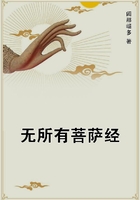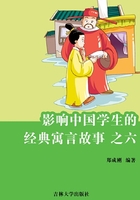It will be shown, contrary to the current hypothesis, that the religion of the lowest races, in its highest form, sanctions morality. That morality, again, in certain instances, demands unselfishness. Of course we are not claiming for that doctrine any supernatural origin. Religion, if it sanctions ethics at all, will sanction those which the conscience accepts, and those ethics, in one way or other, must have been evolved. That the "cosmical" law is "the weakest must go to the wall" is generally conceded. Man, however, is found trying to reverse the law, by equal and friendly dealing (at least within what is vaguely called "the tribe"). His religion, as in Australia, will be shown to insist on this unselfishness. How did he evolve his ethics?
"Be it little or be it much they get," says Dampier about the Australians in 1688, "every one has his part, as well the young and tender as the old and feeble, who are not able to get abroad as the strong and lusty." This conduct reverses the cosmical process, and notoriously civilised society, Christian society, does not act on these principles. Neither do the savages, who knock the old and feeble on the head, or deliberately leave them to starve, act on these principles, sanctioned by Australian religion, but (according to Mr. Dawson) NOT carried out in Australian practice. "When old people become infirm . . . it is lawful and customary to kill them."
As to the point of unselfishness, evolutionists are apt to account for it by common interest. A tribe in which the strongest monopolise what is best will not survive so well as an unselfish tribe in the struggle for existence. But precisely the opposite is true, aristocracy marks the more successful barbaric races, and an aristocratic slave-holding tribe could have swept Australia as the Zulus swept South Africa. That aristocracy and acquisition of separate property are steps in advance on communistic savagery all history declares. Therefore a tribe which in Australia developed private property, and reduced its neighbours to slavery, would have been better fitted to survive than such a tribe as Dampier describes.
This is so evident that probably, or possibly, the Dampier state of society was not developed in obedience to a recognised tribal interest, but in obedience to an affectionate instinct. "Ils s'entr' aiment les une les autres," says Brebeuf of the Hurons.
"I never heard the women complain of being left out of feasts, or that the men ate the best portions . . . every one does his business sweetly, peaceably, without dispute. You never see disputes, quarrels, hatred, or reproach among them." Brebeuf then tells how a young Indian stranger, in a time of want, stole the best part of a moose. "They did not rage or curse, they only bantered him, and yet to take our meat was almost to take our lives." Brebeuf wanted to lecture the lad; his Indian host bade him hold his peace, and the stranger was given hospitality, with his wife and children. "They are very generous, and make it a point not to attach themselves to the goods of this world." "Their greatest reproach is 'that man wants everything, he is greedy'.
They support, with never a murmur, widows, orphans and old men, yet they kill hopeless or troublesome invalids, and their whole conduct to Europeans was the reverse of their domestic behaviour."
Another example of savage unselfish ethics may be found in Mr.
Mann's account of the Andaman Islanders, a nomad race, very low in culture. "It is a noteworthy trait, and one which deserves high commendation, that every care and consideration are paid by all classes to the very young, the weak, the aged, and the helpless, and these being made special objects of interest and attention, invariably fare better in regard to the comforts and necessaries of daily life than any of the otherwise more fortunate members of the community."
Mr. Huxley, in his celebrated Romanes Lecture on "Evolution and Morality," laid stress on man's contravention of the cosmic law, "the weakest must go to the wall". He did not explain the evolution of man's opposition to this law. The ordinary evolutionist hypothesis, that the tribe would prosper most whose members were least self-seeking, is contradicted by all history.
The overbearing, "grabbing," aristocratic, individualistic, unscrupulous races beat the others out of the field. Mr. Huxley, indeed, alleged that the "influence of the cosmic process in the evolution of society is the greater the more rudimentary its civilisation. Social progress means a checking of the cosmic process at every step and the substitution for it of another, which may be called the ethical process. . . . As civilisation has advanced, so has the extent of this interference increased. . . ."
But where, in Europe, is the interference so marked as among the Andamanese? We have still to face the problem of the generosity of low savages.
It is conceivable that the higher ethics of low savages rather reflect their emotional instincts than arise from tribal legislation which is supposed to enable a "tribe" to prosper in the struggle for existence. As Brebeuf and Dampier, among others, prove, savages often set a good example to Christians, and their ethics are, in certain cases, as among the Andamanese and Fuegians, and, probably among the Yao, sanctioned by their religion. But, as Mr. Tylor says, "the better savage social life seems but in unstable equilibrium, liable to be easily upset by a touch of distress, temptation, or violence". Still, religion does its best, in certain cases, to lend equilibrium; though all the world over, religion often fails in practice.
End





![火[合牛]供养仪轨](https://i.pgsk.com/images/book/2020/06/13/144230000.jpg)









